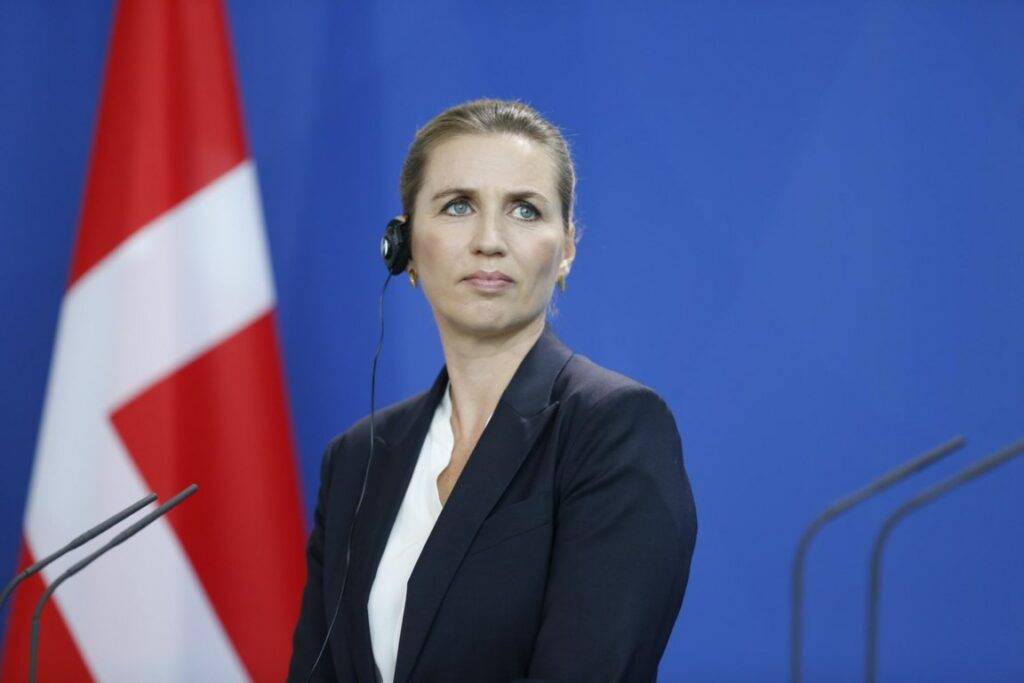Russia's invasion of Ukraine has pushed many European countries to boost their defence policy. In the Nordics, Sweden and Finland have recently applied to join NATO and now, Denmark is also looking to move away from its traditional defence policy.
On Wednesday, Danes will vote in a referendum to decide whether to abandon its opt-out clause on EU defence and security policy, which has been in place since 1992.
Moving forward, the referendum will essentially determine whether Denmark can join EU defence missions or not, as Denmark can currently choose to join EU ventures or not. The opt-out has been in place for the last 30 years.
The Danish Government has recommended that people vote 'yes' to removing the opt-out. "For me as a Prime Minister, it is a decision that signals our values," said Prime Minister Mette Frederiksen at a press conference in March.
Related News
- European leaders reach agreement on partial Russian oil embargo
- NATO expansion: Can Turkey prevent Sweden and Finland from joining?
- NATO: Ecolo Party urges caution on Belgian military spending plans
Leading opposition figure Jacob Ellemann-Jensen echoed her words in Berlingske. "When decisions are being made about Denmark's safety in the EU, then of course Denmark should take part."
In addition to the referendum, Denmark recently agreed to boost its defence budget to reach the NATO target of 2% of GDP by 2033.
Yet despite leading political figures voicing their support for removing the opt-out, large parts of the Danish political establishment as well as the Danish electorate are profoundly Eurosceptic.
A question of sovereignty
Recent polling from Danish public broadcaster DR suggests that 42% of voters will vote yes to removing the opt out, while 28% will vote no. 22 % of voters are undecided.
Yet Danes have their own brand of Euroscepticism and a 'No' vote would reaffirm the country's hesitancy towards closer integration with the EU. While they support the single market and economic cooperation, the notions of further integration or federalisation are frowned upon, and in two separate referendums, the Danes voted to keep their opt-outs.
According to a Eurobarometer poll from 2014, 74% of Danes were against the prospect of the EU developing into a federation of nation states, compared to the 34% EU average.
Implications for security
Parties opposed to removing the opt-out, such as the far-right parties Danish People's Party and New Conservatives, as well as the far-left Unity Party, all fear a loss of sovereignty, with many believing closer EU defence integration could divide NATO.
Danish People's Party leader Morten Messerschmidt told TV2 that he believes a divided NATO would mean gambling with Denmark's security in the event of an 'EU-army'.
According to him, there are many in the EU who want to create an army as a counterweight to the US, which he "certainly doesn't think that Denmark should be part of."
However, EU historian Uffe Østergaard pointed out in Berlingske that the US has said that the EU needs to take on greater responsible for its own security. According to Østergaard, people opposed to removing the opt-out are creating a divide between the EU and NATO which doesn't exist.
Christine Nissen, a researcher in international politics at the Danish Institute for International Studies, sees no advantages to keeping it.
"We lose nothing by ditching the opt-out. We can just vote no to European Defence missions if we want. It is different from the other opt-outs where we would lose sovereignty," Nissen told TV2.
What the vote means for the EU
Denmark currently has four EU opt-outs, which it has had in place since 1992 when Denmark rejected the Maastricht Treaty, but agreed on the condition of securing these opt-outs. In addition to the defence opt-out, Denmark has an opt-out on the euro, judicial matters and citizenship. When Danes go to the polls on Wednesday, it will only be about the defence opt-out.
French Brussels correspondent Jean Quatremer appears to expect a 'no' from Denmark. "The Danes vote no again. What a surprise" came his ironic remark in Berlingske.
By contrast, a 'yes' would intrigue him. "It will change next to nothing for European defence," said Quatremer who didn't mince words about the country.
"Denmark is a little country, which doesn't count for much when it comes to defence. But it's about the signal being sent to the world. And here the signal is that even Denmark, which otherwise is totally nationalist and ready to send refugees out of the country, will fight to the last man sending. It could really kickstart defence in Europe."

